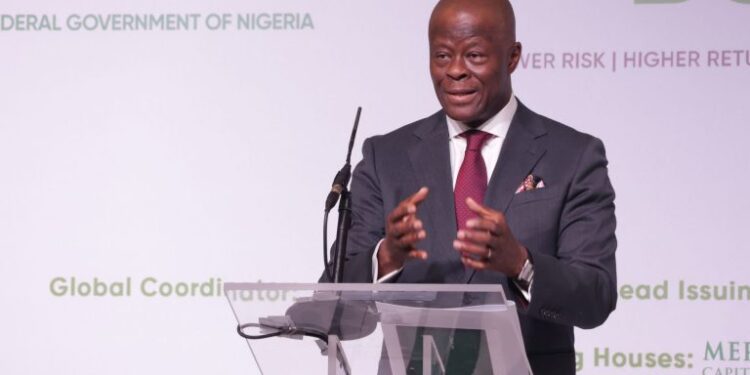The Minister of Finance and Coordinating Minister of the Economy, Wale Edun, has said the Nigerian government needs more borrowings to fund its budget even though some Ministries, Departments and Agencies have surpassed their revenue target.
Edun said this during an interactive session of the Senate Joint Committees on Finance and National Planning and Economic Affairs on the 2025-2027 Medium-Term Expenditure Framework/Fiscal Strategy Paper.
According to him, the borrowing needs to be done productively and efficiently based on the Senate’s approval for proper funding of the budget.
“The revenue effort has been good, but we still need to do better, and in the meantime, we still need to borrow productively, effectively and sustainably all in the name to invest in a Nigerian economy.
“Not just infrastructure but also social services, health services, education and intervention in terms of social safety net to help the poorest and most vulnerable,” Edun said.
Giving a similar reason, the Minister of Budget and Economic Planning, Senator Atiku Bagudu reminded the lawmakers that the borrowing plans contained in the N35.5 trillion 2024 budget, were primarily meant to fund the N9.7 trillion deficit.
“Despite revenue targets surpassing by some of the revenue generating agencies , government still needs to borrow for proper funding of the budget , particularly in the area of deficit and productivity for the poorest and most vulnerable .
“We a long term development perspective plan agenda 2050 aiming at GDP per capital of $33,000,” Bagudu explained.
Meanwhile, the Economic and Financial Crimes Commission (EFCC) and the Revenue Mobilization and Fiscal Commission maintain that if the Federal Government is serious, there would be no need to borrow to fund the nation’s budget.
The Chairman of EFCC, Ola Olukoyede, who told the committee that it has recovered over N197 billion since January 2024, noted that if the government works hard and derives the requisite collection from the IOC’s, the country would have enough to fund the budget.
The Comptroller General of Nigeria Customs Service, Bashir Adeniyi, in his presentation, disclosed that the Customs has raked in N5.352 trillion in revenue above the N5.09 trillion target for the 2024 fiscal year.
He added that N6.3 trillion is targeted as projected revenue for 2025, a 10% increase of which would be the revenue target for 2026 and an additional 10% increase for the 2027 fiscal year.
The Group Chief Executive Officer, of Nigerian National Petroleum Company Limited (NNPCL), Mele Kyari, in his own presentation, said the company exceeded the N12.3 trillion revenue projected for 2024 by already raking in N13.1 trillion.
“For the 2025 fiscal year, N23.7 trillion is projected by NNPCL to be remitted into the federation account “, he said.
The Chairman of the Federal Inland Revenue Service (FIRS), Zacch Adedeji, in his presentation, also informed the joint committees that FIRS had surpassed targeted revenues across the various tax components.
On Thursday, the Senate granted approval to the ₦1.77 trillion ($2.2b) loan request of President Bola Tinubu after a voice vote.
The Senate presided over by Deputy Senate President, Barau Jibrin, approved the loan after the Senate Committee on Local and Foreign Debts chaired by Senator Wammako Magatarkada (APC, Sokoto North) presented the report of the committee.
The request which was submitted by the President on Tuesday is part of a fresh external borrowing plan to partially finance the N9.7 trillion budget deficit for the 2024 fiscal year.
The fresh loan request by Tinubu had triggered criticisms from some Nigerians, especially the opposition. Former Vice President, Atiku Abubakar, described the loan request as “bone-crushing” to Nigerians.
Channels











